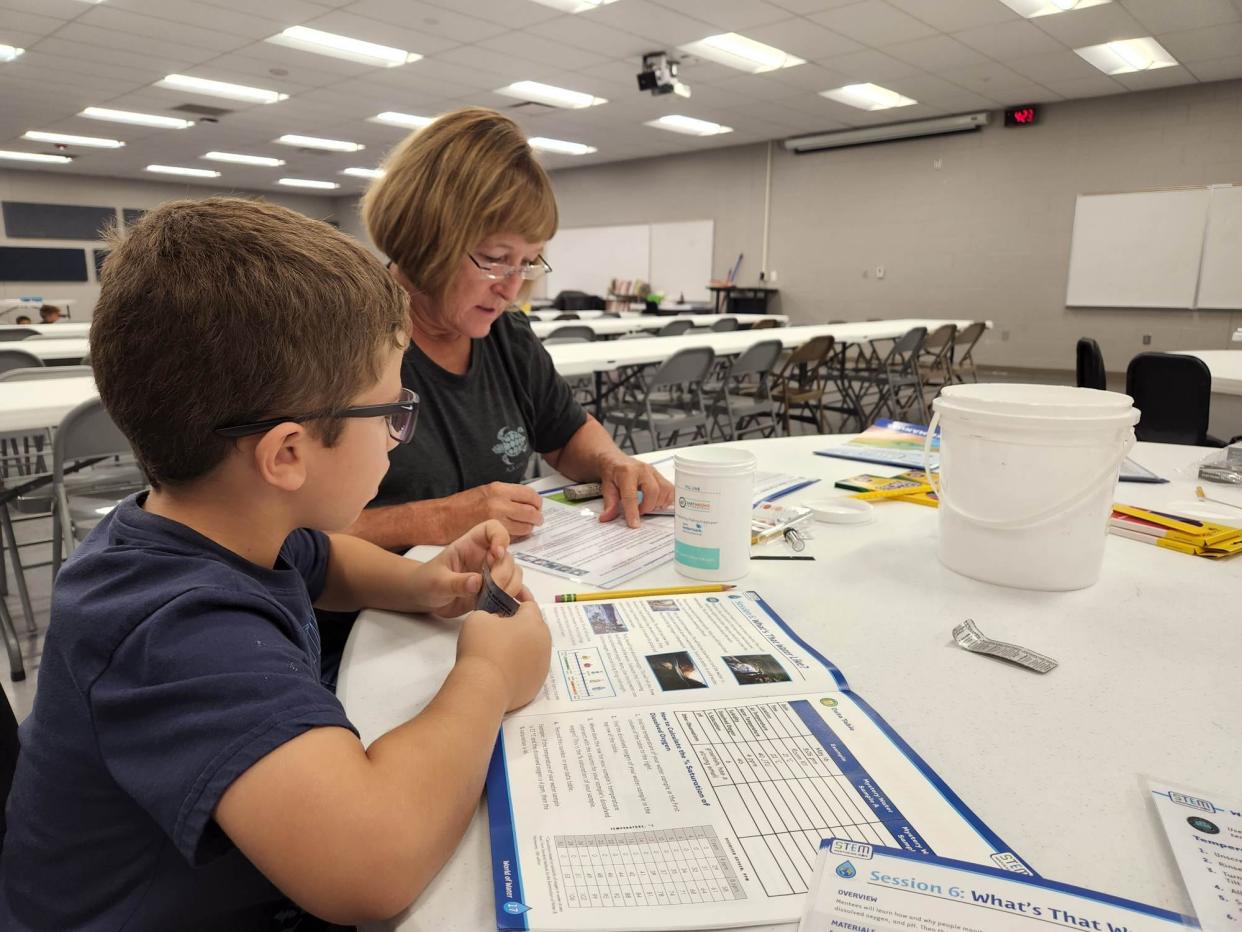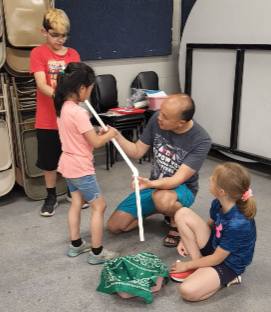'Like little sponges': Benefits of mentoring extolled as International Mentoring Day nears

Mary Smith decided after retiring that she needed "more kids" in her life, she says.
Last April, she became a volunteer mentor for a small group of elementary school students taking part in a Boys & Girls Clubs of Topeka program teaching them about "STEM," which is science, technology, engineering and math.
The arrangement has been a "perfect fit," Smith said.
"They're just little sponges," she said.
Mentors spotlighted as part of annual observance
The Capital-Journal is celebrating International Mentoring Day, which is Tuesday, by highlighting Smith and Howard Chong, volunteers for Boys & Girls Clubs of Topeka.
The two teamed up beginning last April to offer a STEM-related mentoring program for youngsters. Chong then began providing mentoring for BGCT last fall to children interested in chess.
International Mentoring Day was established to foster a global awareness of mentoring and its benefits.
Mentoring usually involves a more knowledgeable person sharing wisdom with someone who has less experience, according to the National Day Calendar website.
Young people with mentors tend to have higher self-esteem and self-confidence, enjoy healthier relationships with others and make better lifestyle choices, it says.
Program's mentors nurture youngsters' confidence

Smith said she was quick to volunteer after learning that BGCT was beginning a STEM Mentoring Program for children at Northern Hills Elementary School, 5620 N.W. Topeka Blvd.
The program is coordinated by Lexi Ray, director of corporate engagement for BGCT.
"The STEM Mentoring Program allows for passionate community volunteers to make a lasting impact on BGCT members through hands-on and fun learning experiences," Ray said.
The program's mentors nurture the children's confidence to help them become lifelong learners, while the lessons taught expose them to potential future careers in STEM, she said.
"This program was made possible by a STEM Mentoring/ Mystic Aquarium grant that allowed for us to pilot this program with the Northern Hills site," Ray added. "In the future we hope to incorporate these lessons into our programs club-wide."
'I just love kids'
Smith's STEM experience includes having earned a college biology degree and worked as a biology researcher and an information technology professional.
Smith is also familiar with children, having once been a stay-at-home mother of two.
"I just love kids, and I love being with them," she said.
Chong is also experienced with STEM, possessing a bachelor's degree in engineering and a doctorate in economics.
He was an economics professor for eight years at Cornell University in Ithaca, N.Y., where he said the students often hadn't learned to solve problems using critical thinking.
"Some of these kids who are in the STEM program and the chess program here, I'd take them over some of the students I had at Cornell," he said.
'I don't know that command'
Smith said she and Chong were provided a "really nice, well laid-out curriculum" for the Northern Hills STEM program, where participants regularly include three to eight elementary school students.
"They're great kids," Smith said. "Each one has their own unique personality, just like every other human on this planet, and it's fun."
The youngsters have carried out experiments that included causing yeast to release carbon dioxide gas and crushing sunflower seeds to produce oil, which can be used for cooking, Smith said.
In one exercise, the children were given a list of about a dozen commands they could use to give direction to a person portraying a robot until he had successfully walked about 20 feet and picked up an object from the floor.
The children continued to give commands until the task was completed.
Some of the commands included "walk," "turn left," "squat down," "put your hand out," "lower your hand" and "close your hand," Chong said.
If the children asked the "robot" to do something that wasn't on the list of commands — such as "turn right" or "grab it" — the robot would respond in a robotic-type voice, "I don't know that command," Chong said.
'If you skip one step, the whole thing doesn't work'
Those types of exercises helps teach children to think, and to solve problems, Chong said.
"Getting them to think in this sort of structured way is really powerful," he said. "If they want to be an engineer or a scientist, it's all about doing things 'step-by-step.' If you skip one step, the whole thing doesn't work."
Meanwhile, the children are growing in other ways, Chong said.
For example, he said, a child might "mess up" three times on an exercise and get frustrated, then successfully deal with those frustrations and do everything right on the fourth try.
Making a move — to chess
If Chong could clone himself, he said, he'd still be at Northern Hills every week mentoring the STEM students.
But he said he left that program, largely because it didn't fit into his schedule and he thought he needed to "make some space to do other things."
Chong accepted an offer last fall to volunteer for BGCT to instead mentor children interested in chess for one hour once a week at North Fairview Elementary School, 1941 N.E. 39th.
The program now involves 10 children in grades one through six, said Elaine Waterman, who oversees it.
"He has the best patience I've ever seen, and he does really well with the kids," she said. "He talks to the kids, and not at the kids."
Some youngsters in the chess program initially had "too much energy" and were "disruptive," Chong said.
Those youngsters "didn't quite know what to do with themselves" during their "free play" time at the school, Waterman said.
But participation in the chess program has completely changed the outlook of those youngsters, she said.
"He's so engaged," Waterman said of Chong. "I couldn't ask for a better mentor. It's really helped us out quite a bit."
'It's so worth it'
Chong said he likes that the chess program enables him to connect with the children and see how their brains work.
"It's great, because chess is so structured," he said. "There is no guessing. They have to think through the steps."
The students in the program are also learning that it's OK to make a mistake, Chong said.
"I told one of the kids, 'If you double your mistakes, you double your learning,' and somehow that clicked for that kid and helped them," he said.
Chong gets a lot of satisfaction out of volunteering to help children, he said, adding that he would encourage anyone who is thinking of becoming a mentor to "definitely do it."
"It's so worth it," he said.
Contact Tim Hrenchir at threnchir@gannett.com or 785-213-5934.
This article originally appeared on Topeka Capital-Journal: Volunteers highlighted, with Tuesday being International Mentoring Day

